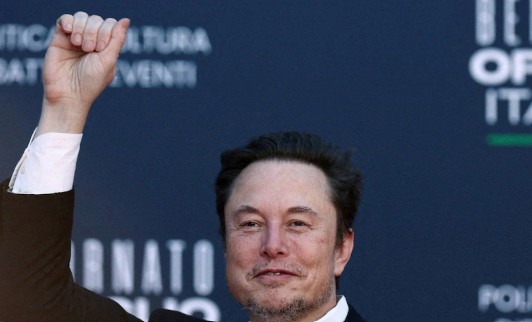Elon Musk’s Best Strategy to Learn New Things: A Blueprint for Mastery
Elon Musk, the visionary behind Tesla, SpaceX, Neuralink, and The Boring Company, is not just…

Elon Musk, the visionary behind Tesla, SpaceX, Neuralink, and The Boring Company, is not just a serial entrepreneur but also a master learner. From revolutionizing the automotive and space industries to delving into artificial intelligence and brain-machine interfaces, Musk has demonstrated an uncanny ability to master new disciplines with remarkable speed and depth. So, what is his secret to learning? Let’s explore the key strategies that have enabled Musk to achieve such extraordinary levels of expertise.
1. First Principles Thinking: Start from the Basics
At the core of Musk’s learning philosophy lies “first principles thinking,” a method borrowed from physics. This approach involves breaking down a concept into its fundamental truths and then reasoning up from there, rather than relying on analogies or conventional wisdom.
For instance, when Musk ventured into the electric vehicle market, he didn’t just accept the high cost of batteries as a given. Instead, he deconstructed the components of a battery, analyzed their raw material costs, and discovered that they could be produced far more cheaply. This same principle applies to how he learns—by identifying the building blocks of any subject and understanding them deeply.
How to Apply This: Instead of accepting common explanations or approaches, question assumptions. Ask yourself: “What do I know for sure about this topic? What are the fundamental elements?” Build your knowledge from these basics.
2. Read Widely and Voraciously
Musk’s voracious reading habit is legendary. As a child, he reportedly read up to 10 hours a day, devouring books on science fiction, programming, and even encyclopedias. As an adult, his reading spans diverse fields, including physics, engineering, philosophy, business, and literature.
This broad base of knowledge allows Musk to draw connections across disciplines, a skill that is especially useful in tackling complex, multidisciplinary problems.
How to Apply This: Cultivate a habit of regular reading, not just in your field of expertise but across various subjects. Reading widely broadens your perspective and provides the mental tools to solve problems in innovative ways.
3. Learn by Doing
Musk doesn’t stop at theoretical knowledge; he emphasizes hands-on learning. Whether it’s building rockets, designing solar panels, or programming AI systems, Musk immerses himself in the practical aspects of his projects. This experiential learning helps him internalize concepts and refine his skills.
For instance, when he decided to create SpaceX, Musk didn’t simply hire rocket scientists and delegate. He read books on rocket propulsion and personally engaged in the engineering processes. This hands-on approach not only deepened his understanding but also earned him the respect of his teams.
How to Apply This: Complement your reading with practical experiments or projects. Whether it’s coding, writing, or designing, putting theory into practice solidifies your understanding and reveals nuances you might miss otherwise.
4. Leverage the Power of Experts
While Musk is a self-learner, he also recognizes the importance of learning from others. He frequently seeks out experts in various fields, asking insightful questions to extract the knowledge he needs. By engaging with top minds, Musk accelerates his learning curve and ensures that his knowledge is rooted in cutting-edge insights.
How to Apply This: Identify experts in the areas you want to master and engage with them through conversations, books, interviews, or online courses. Be curious and ask thoughtful questions to maximize what you learn.
5. Focus on Feedback Loops
Musk is a strong advocate of continuous improvement through feedback. Whether it’s from mentors, employees, or real-world results, he actively seeks out criticism to refine his understanding and performance.
For example, during Tesla’s early days, Musk personally read customer complaints to identify areas for improvement. This relentless pursuit of feedback allowed him to make rapid, informed adjustments to Tesla’s operations and product design.
How to Apply This: Don’t shy away from constructive criticism. Regularly review your work, seek feedback from peers or mentors, and iterate based on the insights you gather.
6. Build a Knowledge Tree
Musk has often likened knowledge to a tree. He believes that to effectively learn, one must first understand the foundational trunk and branches before moving on to the finer details (the leaves). Without a solid grasp of the basics, advanced knowledge can become disorganized and overwhelming.
How to Apply This: When learning something new, start by identifying its core principles and foundational concepts. Once you have a strong grasp of these, progressively dive deeper into the more intricate details.
7. Cultivate Intense Focus and Eliminate Distractions
Musk’s ability to focus deeply on the task at hand is another hallmark of his learning strategy. By dedicating uninterrupted time to studying and problem-solving, he achieves more in less time. Musk is known for working up to 100 hours a week, often splitting his time between multiple projects, yet maintaining deep focus on each.
How to Apply This: Dedicate blocks of time for focused learning. Turn off distractions like social media, emails, or notifications, and immerse yourself fully in the subject you’re studying.
8. Stay Curious and Relentlessly Question
Musk’s insatiable curiosity drives his learning journey. He approaches every subject with a childlike wonder, asking “Why?” and “How?” repeatedly until he fully understands a concept. This curiosity propels him to dive deep into subjects that others might skim over.
How to Apply This: Cultivate a mindset of curiosity. Don’t settle for surface-level understanding; ask deeper questions and seek answers until you grasp the full picture.
Conclusion
Elon Musk’s strategy for learning is not a magical formula but a combination of deliberate practices that anyone can adopt. By thinking in first principles, reading widely, learning by doing, seeking expert guidance, and maintaining a relentless curiosity, you can accelerate your own learning and master even the most complex subjects.
Whether you aspire to innovate like Musk or simply want to expand your horizons, these strategies offer a roadmap for lifelong learning and success. As Musk himself once said, “You can learn anything. The tools are there. All you need is the desire to learn.”



